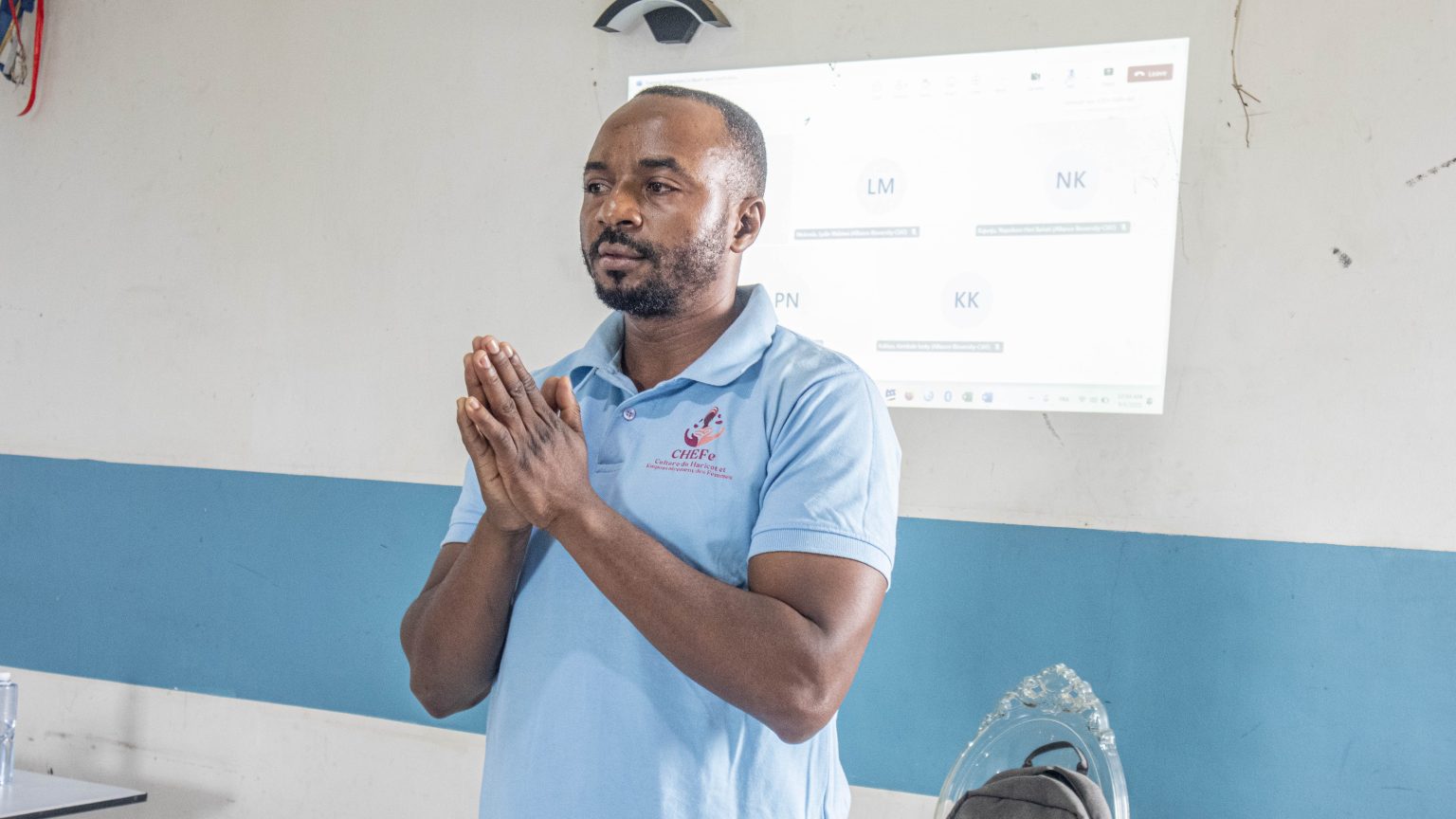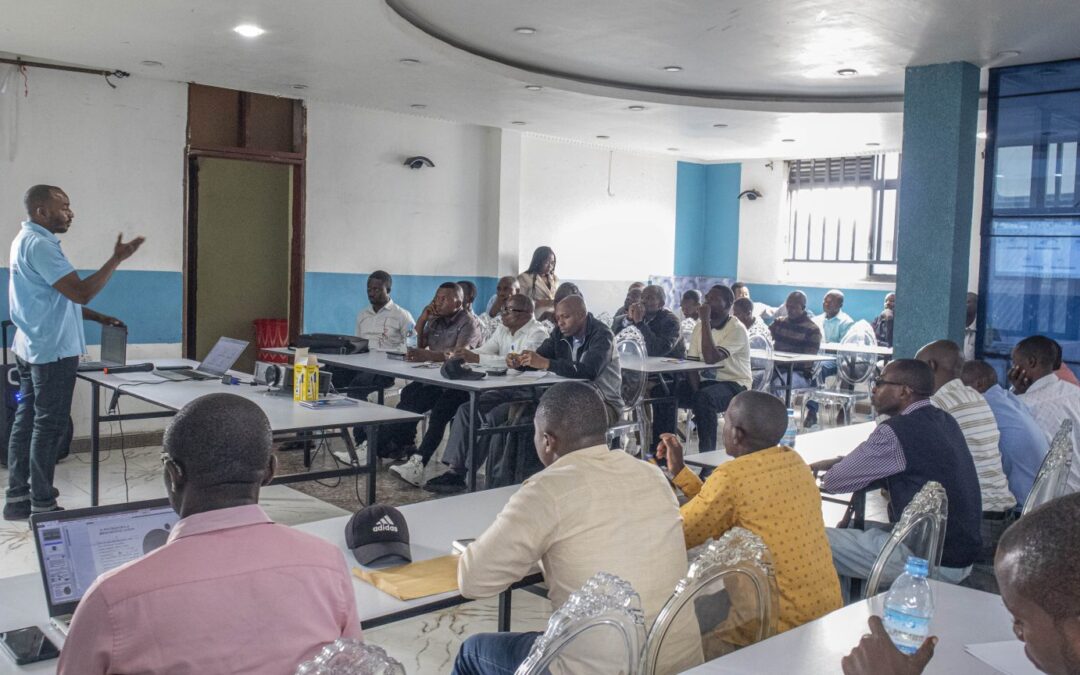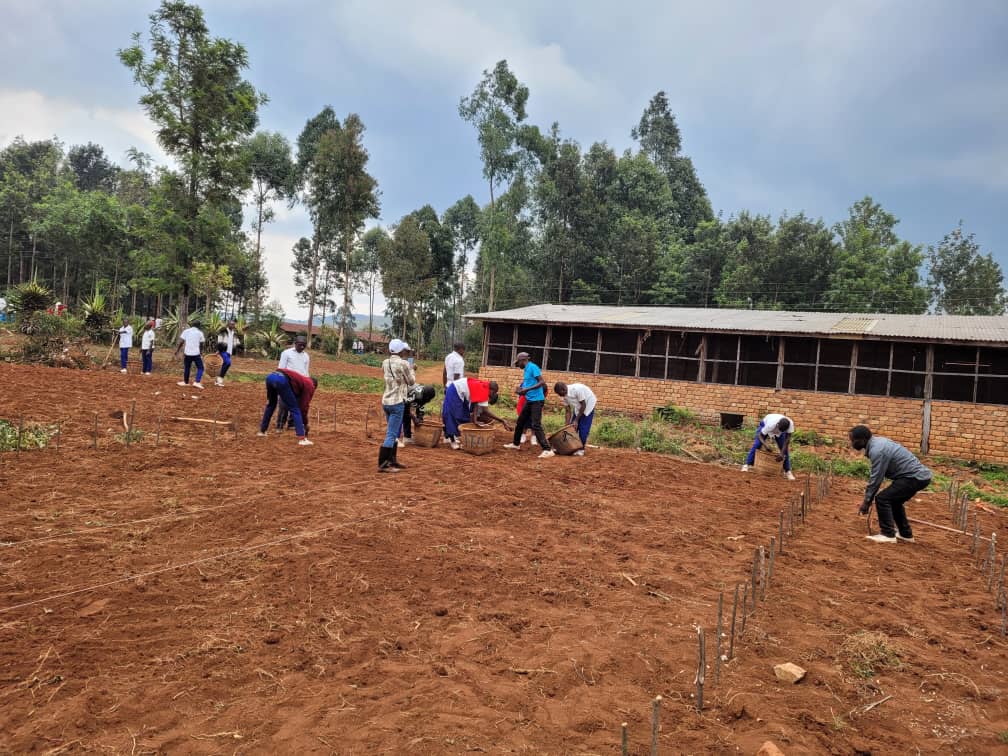By Napoleon Kajunju, Lucky Kalisya, Lydie Mulonda, Bola Amoke Awotide, Jean Claude Rubyogo
Skies of Eastern Democratic Republic of Congo (DRC) have witnessed decades of conflict and hardship that have taken a heavy toll, but amidst such struggles, a special revolution is unfolding, led by schoolteachers. In early September, classrooms in North and South Kivu traded their usual lessons for an extraordinary curriculum centered on one of the region’s most vital crops: beans. From Bukavu to Goma, educators and school leaders are embracing the humble bean not just as food, but as a powerful tool for improving nutrition, fostering resilience, and empowering women in their communities.
Between September 5 and 6, 2025, the Alliance of Bioversity International and CIAT through the Pan-Africa Bean Research Alliance (PABRA), trained 50 teachers – designated as Trainers of Trainers – from 20 schools in South Kivu in areas such as Kabare, Walungu, Kalehe, and Idjwi and 30 schools in North Kivu, specifically in Rutshuru, Nyiragongo, and Masisi. This initiative is part of the Beans for Women Empowerment (B4WE) Project, funded by Global Affairs Canada (GAC), which targets malnutrition, women’s leadership, and economic growth through the promotion of beans.
Beans as catalyst for change
In a region where poverty and food insecurity are daily realities, beans offer more than sustenance. Rich in protein, iron, and zinc, they are a frontline defense against malnutrition and a doorway to economic empowerment, especially for women.
“Teachers are powerful conduits for knowledge. When equipped with the right tools, they become catalysts for community transformation,” said Roger Ndiruhirwe of National Nutrition Programme (PRONANUT), who led the South Kivu session.
Napoléon Kajunju, a Nutrition Researcher at the Alliance, highlighted the broader vision:
“Our goal is to promote widespread consumption of protein- and mineral-rich beans through a social and behavioral change communication approach. These teachers will carry this knowledge to thousands of students and their families.”
The same message echoed in North Kivu, where Théophile Sunzu, a nutritionist at PRONANUT, emphasized the importance of biofortified beans in combating hidden hunger.
“We revisited nutrition fundamentals and biofortification techniques to empower school leaders to sustain the culture of beans in their communities.”
From classrooms to fields
Over two days, the training blended theory and hands-on learning. In South Kivu, ten comprehensive modules covered nutrition, biofortification, and food safety, while North Kivu’s sessions focused on complementary themes. Teachers learned about balanced diets, fighting micronutrient deficiencies, and the vital role of biofortified beans. Sessions on food safety and hygiene stressed best practices from farm to plate. Representatives from the Provincial Education Directorate of North and South Kivu reminded participants that nutrition and health education are already part of the national curriculum but need stronger implementation.
Led by Lydie Mulonda, Seed Systems Specialist for the B4WE Project, teachers also learned how to establish and manage demonstration plots at schools. These plots serve as practical living classrooms, supporting social and behavioral change communication efforts to promote bean production and consumption.
The training atmosphere was vibrant. Teachers not only absorbed knowledge but committed to action, integrating nutrition education into lessons, growing beans at home, and setting up demo plots at schools. They also participated in cooking demonstrations, mastering how to prepare bean-based porridge flour and creative recipes.
Local entrepreneurs joined the momentum. In Bukavu, Véronique Babunga showcased ADOR Nutri porridge flour made from beans, while Huguette Sakina of ABECHA presented products including sorted beans, precooked beans, and bean-based composite flour. Teachers tasted the products and placed orders, underscoring beans’ potential to bridge health and local markets.
Linking nutrition to school feeding
The initiative also seeks to reshape school feeding programs in the DRC. Traditionally reliant on emergency humanitarian aid, these programs often lack sustainability. B4WE promotes a home-grown, community-based model.
In South Kivu, 20 schools will grow beans on demo plots for school meals, turning agriculture into hands-on education. In North Kivu, 30 schools will trial biofortified seeds alongside traditional varieties to showcase their nutritional and agronomic benefits. PROVED inspectors endorsed the approach.
“It’s rare to see an international organization focusing on schools like this. We are committed to supporting the project to achieve its goals,” said Emmanuel Nshombo, an inspector in Bukavu.
Voices from the ground

Teachers also received training on gender and land access, where Lucky Kalisya, Land Rights Officer with the B4WE program, introduced a new approach to help primary and secondary school teachers gain access to land
Teachers left the sessions energized and determined. “We will help CIAT raise awareness and spread this message, but we also need farming tools to put these lessons into practice,” said Augustin Rhuhunemungu, a teacher from Kabare.
Josiane Igega Lufungulo from Walungu pledged to set up a demo plot at home. “I want to show my students that nutrition and entrepreneurship can go hand in hand through beans.”
In North Kivu, facilitator Paulin Njingulula encouraged teachers to advocate for resilient school feeding programs based on local production instead of aid or imports, a suggestion met with enthusiasm.
Scaling up across eastern DRC
The trainings in Bukavu and Goma mark just the beginning. B4WE plans to reach 60 schools across Eastern DRC: 30 in North Kivu, 20 in South Kivu, and 10 in Tanganyika. Teachers will multiply the knowledge, spreading it through schools, families, and communities.
The ripple effect promises to be wide-ranging, benefiting over two million people, including 300 women-led businesses, 25,000 women leaders, and 15,000 farming couples.
With teachers now ambassadors of nutrition and empowerment, each lesson on beans could sow the seeds of healthier children, stronger households, and more resilient communities.
Cover📷: Teachers getting the knowledge of how beans can boost nutrition, resilience, and women’s empowerment


